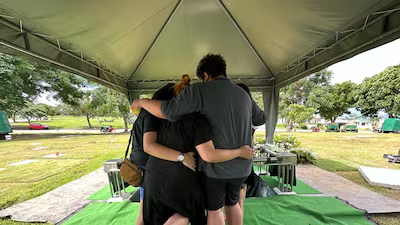“Every so often, we long to steal to the land of what-might-have-been, but that doesn't soften the ache we feel when reality sets back in.”
These words from I'm Not That Girl have been a quiet anthem in my life since I first heard them in 2017 when I saw Wicked live on stage for the very first time at a London theatre – my palms still sticky from holding my overpriced soft drink too tightly.
I had known of the musical, originally released in 2003, way before I got the chance to see it in the flesh. We didn't often get international productions in Manila. And when we did, I couldn't afford the tickets. So when I got an all-expenses-paid trip to the UK to represent the Philippines in a public speaking contest, also my first international flight, I knew I had to take a detour, no matter what, to watch a show in the West End.
I still vividly remember entering the Apollo Victoria Theatre, wearing winter clothes I thrifted back home, in spring. It was May. Tears immediately welled up as I took in the emerald-lit stage, its grandeur hitting me like a revelation. By the time the lights dimmed and the overture started, I felt like I’d stumbled into something sacred. And then that song came.

For some reason, I’m Not That Girl, though framed as protagonist Elphaba’s lament for an unattainable love, spoke to something deeper within me. It wasn’t just about longing for someone out of reach, but a painful yearning for a version of life that always seemed just beyond grasp.
That ache, that quiet heartbreak, is something so many of us carry, especially those who’ve felt different or out of place in some way. Elphaba’s green skin may be literal in Oz, but it’s a universal metaphor for being marked as “other” – by race, by gender, by dreams too bold for the world to understand.
A timeless allegory
Seven years after my Wicked experience in London, I was lucky to be among the first few people in Dubai to watch the movie adaptation. Once again, sobbing at the ingenious take of director Jon M Chu and lead actresses Ariana Grande and Cynthia Erivo. Talking animals, grand choreography and a gripping dance sequence that gave even more nuance to Elphaba's pain, I was reminded how the story is more than just a spectacle to behold. It's a mirror for so many of us who've ever felt too green, too much or not enough.
At its heart, Wicked is about two women navigating a world that tries to define them. Elphaba, the misunderstood outcast, refuses to shrink herself despite the labels forced upon her. Glinda, the golden girl who seems to have it all, wrestles with the burden of privilege and complicity.
Honestly, haven’t we all been Glinda at some point? Benefiting from systems we know are unfair but feeling too comfortable – or too afraid – to challenge them? Watching her wrestle with guilt and ambition is a reminder that change begins with self-awareness, however messy or imperfect.

This duality – Elphaba’s fight against external oppression and Glinda’s internal struggle with privilege – is what elevates Wicked beyond a fairytale. It’s an allegory of power, prejudice and moral complexity. The Wizard’s regime, with its propaganda and scapegoating, feels eerily familiar in today’s climate of division and disinformation. Elphaba’s fight for justice, despite the overwhelming odds, is as relevant now as it was when the musical debuted in 2003 – or when Gregory Maguire’s novel was published in 1995.
For me, as a Filipino navigating spaces that weren’t always designed for someone like me, Elphaba’s story feels deeply personal. Her defiance, her refusal to apologise for being different, is a reminder that individuality is its own kind of power – even when the world insists otherwise.
Yet, as grand as the political themes are, Wicked never loses sight of the personal. At its core is the bittersweet friendship between Elphaba and Glinda. Their connection is messy, tender, and achingly real – a reminder that the people who truly see us don’t just love our shiny surfaces. They embrace our jagged edges, too.
Who hasn’t had a friendship like that? One where love and conflict coexist, where goodbye doesn’t lessen the impact of having been truly known?
Why the film matters now
This is also why the adaptation matters a lot. Sure, it's nostalgia for a “theatre kid” like me, but the film release makes it more accessible to that wide-eyed child in Manila or elsewhere who may not have the means to experience the live Broadway or West End versions ever in their lives. It's a chance to remind a wider audience of what's at stake when we let fear and prejudice dictate whose stories get told.
So, in short, I'm watching Wicked again. And again. Always ugly crying into my caramel-and-cheese popcorn (only the best flavour combination) bucket. There is great satisfaction in witnessing Elphaba's refusal to wallow in the despair of being different. Her act of defiance was an act of self-acceptance, which ultimately lets her fly. It's a lesson I keep relearning, especially in a world that still often rewards conformity over courage.


